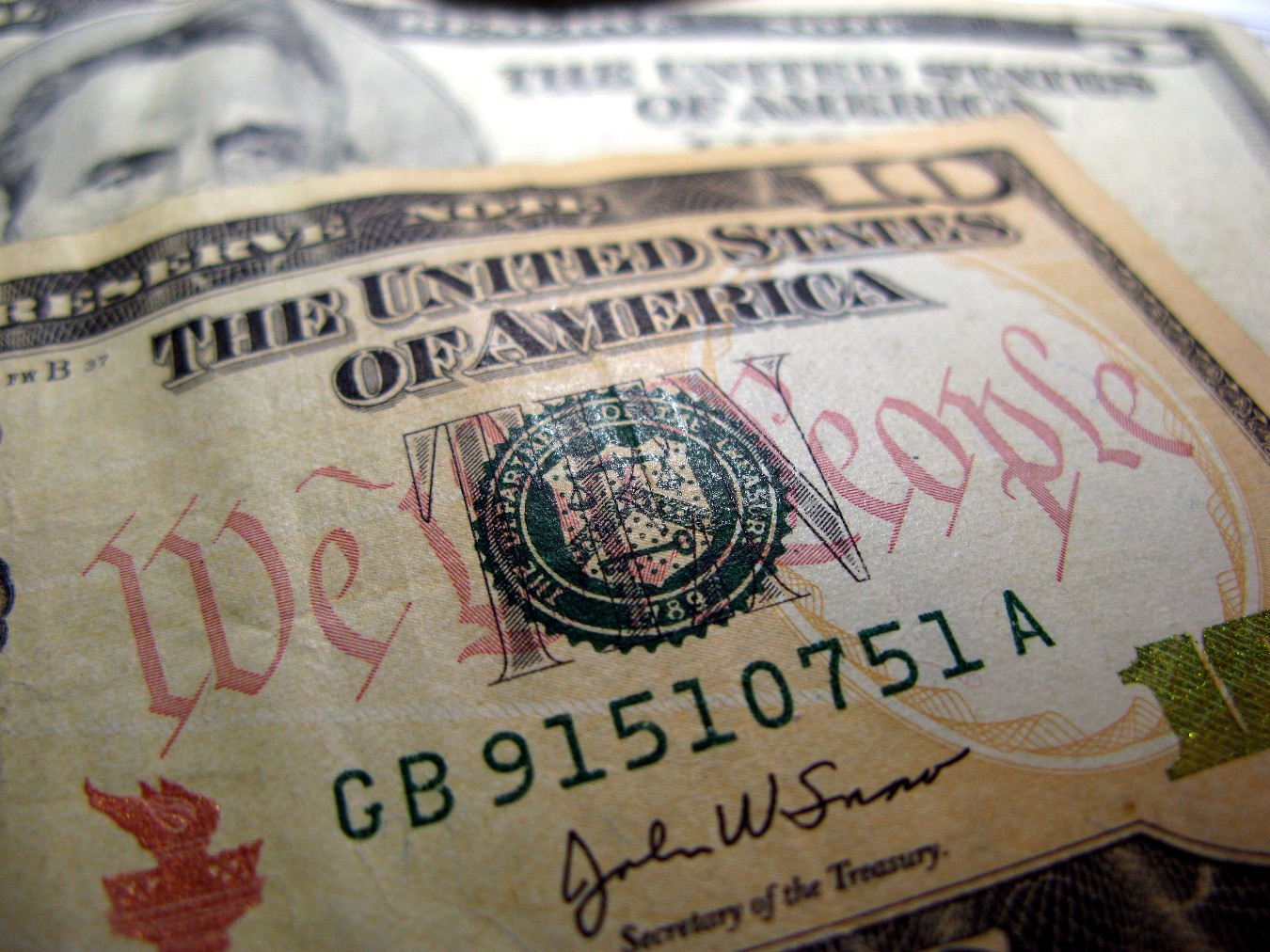14 Sorority Women the U.S. Treasury Should Consider for the New $10 Bill
Features

Photo by flickr user armydre2008.
The Treasury Department announced this week plans to include a woman on the $10 bill as part of a planned redesign that will enter circulation after 2020. The announcement coincides with the Women on 20s campaign that’s been lobbying to put a woman’s face on U.S. paper currency. The Women on 20s campaign has gained momentum in recent months, though the Treasury Department says the timing of their announcement is merely coincidence.
Officials have yet to name which historical figure will replace or appear alongside Alexander Hamilton on the $10 note. Since the Treasury Department invited citizens to submit names for consideration, we decided to assemble the following list of remarkable sorority women whose courage and resolve blazed trails for others and left our country better than they found it. We invite all readers to suggest names of qualified candidates we may have missed. Here they are, in alphabetical order by last name.
Sadie T. M. Alexander, Ph.D (Delta Sigma Theta) was the nation’s first African-American woman to earn a Ph.D. in economics and later become a founder of the National Bar Association. In 1945 she was appointed to Commission on Civil Rights by President Truman. Alexander was also the first national president of Delta Sigma Theta.
Brigadier General Margaret A. Brewer (Zeta Tau Alpha) was the first woman general of the United States Marine Corps and served a distinguished career in executive positions at Camp Pendleton, Camp Lejune, and Quantico Marine Base, among others.
Brigadier General Hazel Johnson Brown, Ph.D. (Delta Sigma Theta) was the first African-American woman general in the United States Army.
Carrie Chapman Catt (Pi Beta Phi) was influential in passing the 19th Amendment and founded the National League of Women Voters.
Georgia Neese Clark (Alpha Phi) was the first woman Treasurer of the United States. Her signature appeared on all U.S. currency during her tenure. Clark also served as national president for Alpha Phi.
Marjorie Mehne Culmer (Kappa Delta) was elected national president of the Girl Scouts of the USA in 1957. As the former president of an organization that values civics, democracy, and leadership, Culmer undoubtedly meets the criteria for the currency note candidates.
Anna Elizabeth Dickinson (Kappa Alpha Theta) was an advocate for the abolition of slavery and staunch supporter of women’s suffrage. She played a prominent role in coordinating political campaigns in Union states in the months leading up to the Civil War. Dickinson was also the first woman to speak before the United States Congress.
Lou Henry Hoover (Kappa Kappa Gamma) advocated for volunteerism in her weekly radio broadcasts as First Lady. She served as national president of the Girls Scouts of America before and after her term as First Lady.
Jane Yelvington McCallum (Alpha Delta Pi) was a former Texas Secretary of State and served as publicity chairperson during the suffrage movement. She later served as chairperson of the Texas state ratification committee for the 19th Amendment to the Constitution and authored the Texas chapter of the National History of Women’s Suffrage.
Francine Irving Neff (Alpha Delta Pi) served as the 35th U.S. Treasurer under President Nixon and later under President Ford. Following her service with the federal government Neff became the first woman appointed to Hershey’s Food Corp. Board of Directors.
Rosa Parks (Alpha Kappa Alpha) is widely regarded as “the mother of the freedom movement” for her role in the Civil Rights Movement. Parks received the Presidential Medal of Freedom, the Congressional Gold Medal, and she was the first woman to lie in honor in the U.S. Capitol Building. As one of our nation’s most iconic and influential figures, Parks is an obvious candidate for this recognition.
Ivy Baker Priest (Delta Zeta) served as United States Treasurer with the Eisenhower administration from 1953-1961. During this time her signature appeared on all U.S. currency, making her a natural candidate to appear on the new $10 bill. She was once said to have quipped, “We women don’t care too much about getting our pictures on money as long as we can get our hands on it.”
Eleanor Roosevelt (Alpha Kappa Alpha) was a champion for women’s rights throughout her life and later become known as a steadfast advocate for human rights in general, which earned her the name “First Lady of the World.” As the U.S. delegate to the United Nations, she lobbied to pass the Universal Declaration of Human Rights. For her unwavering support of these important causes, Roosevelt was voted one of the finalists in the Women on 20s campaign that seeks to replace Andrew Jackson with a woman’s face on the $20 bill.
Frances E. Willard (Alpha Phi) was a women’s suffragist whose influence was instrumental in the passing the Nineteenth Amendment to the United States Constitution. Willard also served as Alpha Phi’s national president.
Who did we miss? Leave a comment below or email news@sigmanu.org so we can make sure our list includes all qualified candidates.